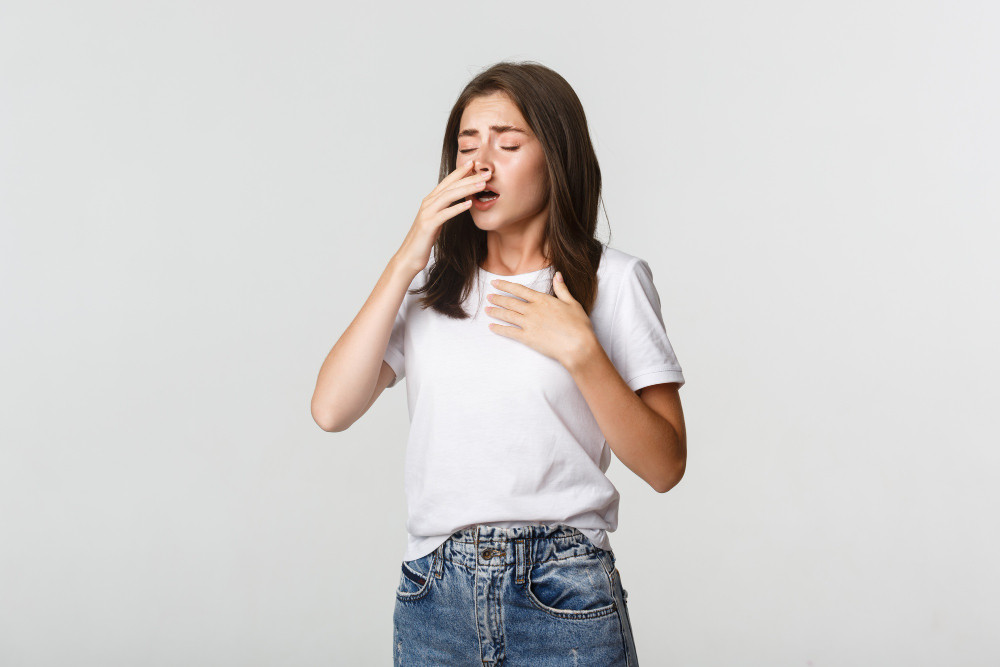One of the most prevalent allergies in the community is dust allergy. Although not dangerous, this type of allergy can interfere with daily activities. What are the symptoms and treatments for dust allergies? Check out the following review.
What is dust allergy?
The dust that is all around us is made up of dirt, tiny insects called mites, and dead skin cells that can cause allergies. An allergic reaction caused by inhaling dust or dust mites is known as a dust allergy or dust mite allergy. Dust mites thrive in moist environments and feed on human skin cells. Because of their tiny size, dust mites are invisible to the naked eye.
When someone has dust allergies, their immune system overreacts to the allergen, causing reactions such as itching, coughing, sneezing, an itchy throat, a runny nose, and watery eyes.
Read more: Cold Allergy, Recognize Symptoms And Treatment
Symptoms of dust allergy
Each person may experience different symptoms from a dust or dust mite allergy. There is also variation in the allergy symptoms that manifest, ranging from minor to severe symptoms. These symptoms may include:
- Runny or itchy nose
- Itchy skin
- Nasal congestion
- Sinusitis
- Itchy, watery, or red eyes
- Itchy throat
- Cough
- Swollen and bluish-colored skin under the eyes
- Difficulty sleeping
For people with asthma, dust allergy symptoms can be more severe, such as:
- Chest pain or tightness
- Difficulty breathing
- Wheezing, coughing, or shortness of breath
- Difficulty speaking
- Severe asthma attacks
Read more: Signs Of Allergy To Cold Air
Management of dust allergy
The symptoms of mild dust allergies will go away as soon as you leave the dusty environment. The symptoms usually go away in a few hours. However, the symptoms of severe allergies can persist for several days.
The following drugs can help treat a dust allergy:
- Antihistamines. Antihistamine medications function by blocking the effects of histamine, which is released when the body senses danger or foreign substances. When the body is exposed to foreign objects or harmful substances, the immune system will release histamine, which results in allergy symptoms such as hives, red eyes, an itchy nose, and sneezing. Antihistamine medications come in the form of oral medications or nasal sprays.
- Corticosteroids. Oral and nasal sprays containing corticosteroids can be used to treat inflammation. Corticosteroids function by lowering immune system activity linked to inflammatory conditions.
- Decongestants. Oral or nasal decongestants can be a temporary solution to allergy congestion. They should not be taken long-term, as they can interfere with respiratory function.
Dust allergy is a common condition that can affect people of any age. You can prevent it by keeping your home free of dust, avoiding dusty areas, and wearing a mask when you are in dusty areas.
If you need medical advice or consultation, you can either visit a doctor or make use of the consultation features that are available in the Ai Care application by downloading the Ai Care application from the App Store or Play Store.
Looking for more information about other diseases? Click here!
- Sean Edbert Lim, MBBS
WebMD Editorial Contributors. Dust Allergy. Available from: https://www.webmd.com/allergies/dust-allergies
Mayo Clinic. Dust Mite Allergy. Available from: https://www.mayoclinic.org/diseases-conditions/dust-mites/diagnosis-treatment/drc-20352178
Cleveland Clinic. Dust Mite Allergy. Available from: https://my.clevelandclinic.org/health/diseases/17712-dust-mite-allergy
Kerr, M. (2020). Dust Mite Allergies. Available from: https://www.healthline.com/health/allergies/dust-mites











